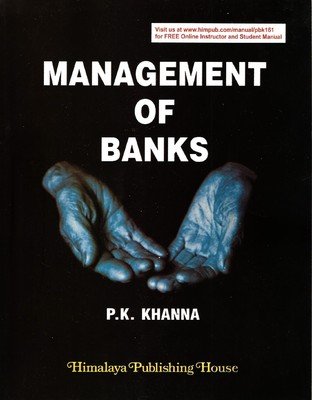Management of Banks
no information available
No organisations can achieve its goals and objectives without proper and effective management. Management is the lifeblood of any organisation whether commercial, manufacturing or service industry like banks. Proper management helps in ensuring that all the faculties are functioning in a planned and desired manner. For efficient and effective management technical, conceptual and behavioural skills are must. Managing bank is not a routine affair. Banks are financial institution dealing mainly in intermediation of funds. They do business on the funds and trust of people. As economic structure of a country largely depends on its sound banking system, banks have added responsibility of infusing public confidence in the financial system of the country. Government and the Central Bank (Reserve Bank in case of India) not only lay down policy guidelines for banks but also closely supervise and monitor them and their performance. All commercial organisations including banks are profit conscious. Hence, all activities of bank management are directed towards business growth and profit maximistion without ignoring and compromising social and economic responsibilities. Keeping in view the activities performed by banks, the book has been designed in four parts, which takes care of various functional aspects of management, i.e., business growth, monitoring, manpower etc. The book has been written keeping in view the requirements of commerce graduates, postgraduates, management students of various universities who have opted banking or bank management as one of the subject or are specialising in banking. The book would also be of immense help to those perusing ICWA, other professional courses and to professional bankers. The book will impart functional knowledge to IT professionals working in the area of banking. The book would be able to address ever-increasing knowledge impatience of those who have chosen banking as career and want to have professional edge over others. Contents : Part I : BANKING SYSTEM 1. Structure of Indian Banking 2. Commercial Bank 3. Central Bank - Reserve Bank of India 4. Financial Institutions Part II : BANKING BUSINESS 5. Negotiable Instruments 6. Banker Customer Relationship 7. Accounts of Different Types of Customers 8. Deposits 9. Non-resident Deposits 10. Other Banking Services 11. Technology Based Services 12. Loans, Advances and Charging of Security 13. Letters of Credit 14. Customer Service Part III : SUPERVISION AND CONTROL 15. Non-performing Assets and Prudential Accounting Norms 16. Audit and Inspection 17. Prevention of Frauds 18. Fundamentals of Risk Management 19. Performance Budgeting Part IV : PERSONNEL MANAGEMENT 20. Process of Management 21. Human Resource Management 22. Performance Appraisal 23. Training 24. Promotion 25. Motivation Amendments made by RBI Bibliography ... Read more Read less











